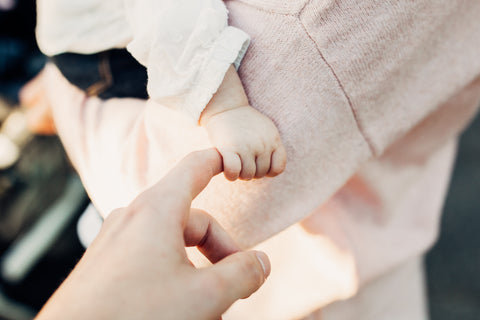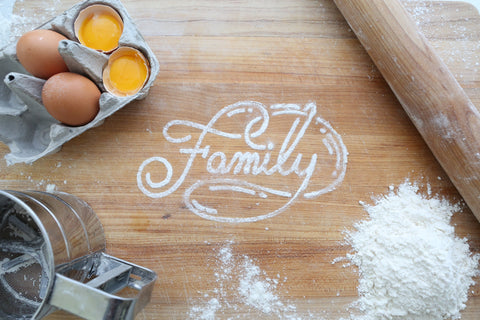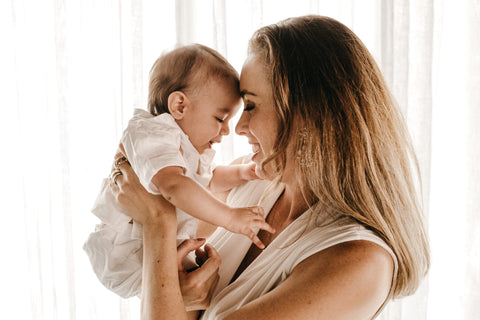Coronavirus in Babies: What Parents Need to Know
Back in December of 2019, there was news about the Coronavirus happening in China. Little did residents know who lived in other areas of the world even imagine that this virus would spread worldwide to the point of it becoming a pandemic. And on March 11, 2020, the Coronavirus or the COVID-19 virus was declared as a pandemic that brought on rules of social distancing and lockdowns. This has been done in order to slow the spread so that the healthcare system does not become too overwhelmed.
The virus causes pneumonia-like symptoms to those who contract it such as coughing, wheezing, fevers, and an extreme feeling of malaise. It has been deadly to many, and to some, it presents itself as a cold. And some people who have the virus are completely asymptomatic. The biggest fear is not knowing how someone who contracts the virus could be affected by it.
Those who have weak immune systems, underlying conditions, and those who are older than 60 are at the highest risk for succumbing to it. However, even younger and healthy individuals had gotten seriously sick to the point of being hospitalized as well. Parents of infants are understandably scared about how COVID-19 can impact their babies.

Parenting is a role that is far from easy, and the last thing that parents need is the worry of how the Coronavirus can affect their babies and young kids. This is why the staff at mummoCare did some research on how this virus affects babies to give parents the information they need to stay safe and to keep their little ones safe.
According to the experts at John Hopkins Children's Center, parents can relax about one thing. The Coronavirus more often than not will present itself in babies quite mildly. However, unfortunately, there have been some infant deaths that occurred due to the Coronavirus which is quite unusual. One of the few cases of a COVID-19-related death of an infant involved the infected mother giving birth prematurely. Premature infants have a very weak and immature immune system which could explain how the risk would be greater in that case.
The majority of the time, babies that contract the virus usually can fight it off and don't have severe symptoms. In other words, healthy infants can fight it off easier than those in the high-risk category since as the elderly. However, parents will want to do everything they can to not take any chances on their infants ending up with the virus. They need to take the same precautions that others are told to take.
The experts at John Hopkins Children's Center make it clear for parents to not cough or sneeze near their infants, and other kids if they have them. Before handling their infants after touching objects from outside places such as groceries, they must wash their hands with soap and water before going into the baby's nursery. Washing their hands with soap and water for 20 seconds is what is recommended for parents and anyone else from spreading the virus.
It is also highly important to keep the baby away from surfaces that could potentially be infected by those who touched them such as tables.
The virus from someone infected can enter the baby's mouth, nose, or eyes. This can be from droplets of a cough or a sneeze from someone who is infected handling the baby. Even if the baby does not get that sick from the virus, the infant can pass the virus onto someone else handling him or her. This can be quite dangerous if a grandparent, especially over the age of 60, handles the baby. The same applies to someone who is on chemotherapy that weakens the immune system.

The thing that parents need to do right now is to make sure that they do not risk passing COVID-19 to their babies so they can keep others around them healthy. There are steps they can take that go beyond them washing their hands.
How Can Parents Keep Their Babies From Contracting The Coronavirus?
The following steps parents can take in order to keep their babies safe from COVID-19 are:
Staying cautious when grocery shopping - Parents should not be taking their infants to grocery stores right now. The only time grocery shopping should be done is when there is someone available at home that can watch the baby so the other parent can run the essential errand. They must wear a mask and gloves when they shop. They must stay 6 feet away from others, as instructed by the government. When they come home, they must dispose of the gloves and mask very carefully, wipe down the bags and groceries, and wash their hands properly. That must be done before they handle their babies or other kids again.

- Coughing and sneezing into their sleeves - Any coughing and sneezing that parents do must be done in their sleeves. And they will even want to consider taking the extra measure of wearing a mask if their arms are occupied by holding the baby.
- Wipe down surfaces often - Surfaces such as tables and sofas must be wiped down with a rag with water and soap or a wet wipe. Changing pads and the baby's dresser should also be wiped down since the infant will be in contact with the furniture. The same goes for the bassinet and the crib. Parents touch those things too which is why.
- Encourage older kids to wash their hands and to take the same precautions as the parents - If parenting wasn't complicated enough, the COVID-19 pandemic just made it more complex. Older kids will need to practice sneezing and coughing into their sleeves and will get into the habit of handwashing. For kids that balk at handwashing, parents will want to reward them with a sticker or a small snack after they successfully do it. Explain to them in terms they can understand that they could catch it, and even if they don’t get sick, they could pass it over to their baby brothers or sisters. Their baby siblings may also be fine, but others who handle them may not be.
- Stay away from crowds and sick people - The social distancing rule is one that is almost worldwide right now, but many people are disobeying it. It is a very uncomfortable thing to do and many people are struggling with the change. Parents have a responsibility to keep their kids and others around them safe by abiding by the rules. Stay 6 feet away from others. And stay away from anyone that is sick. Taking walks in the neighborhood is fine, but stay away from others who are doing the same.

It is reassuring to know that babies and small children most of the time will have mild symptoms if they catch COVID19. That’s if they are healthy. But you don’t want to risk it at all. My worry is that now that it’s easing off somewhat in different areas that people will stop taking the social distancing rule less seriously. That could make it worse again. The rules really need to be set stronger once the economy does reopen. That is until a vaccine or effective treatments have been proven to work. We are in it for the long haul.